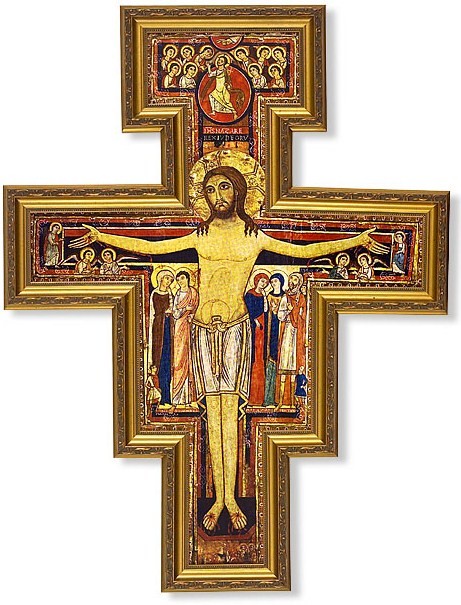Short Reflection on the Structure of The Lord's Prayer
 Like most of you, I’ve been praying the Our Father as far back as I can remember. Praying it every night before bed, as well as every Sunday at Mass. I can even remember family members, catechism teachers, and priests telling me to reflect on the words of The Our Father and to ask the Lord to help me live out a better life with sincerity. Little did I know that it was the CENTERPIECE of the most famous sermon (sermon on the mount) ever preached. Their is no doubt that the Lord’ Prayer is a long awaited gift. As Scott Hahn states, “Certainly, this prayer is itself an answer to a sustained request on the part of humanity: “Lord, teach us to pray” (Lk 11:1).” [1]
Like most of you, I’ve been praying the Our Father as far back as I can remember. Praying it every night before bed, as well as every Sunday at Mass. I can even remember family members, catechism teachers, and priests telling me to reflect on the words of The Our Father and to ask the Lord to help me live out a better life with sincerity. Little did I know that it was the CENTERPIECE of the most famous sermon (sermon on the mount) ever preached. Their is no doubt that the Lord’ Prayer is a long awaited gift. As Scott Hahn states, “Certainly, this prayer is itself an answer to a sustained request on the part of humanity: “Lord, teach us to pray” (Lk 11:1).” [1]
Recently, however, I’ve learned something new from the Lord’s Prayer, something that I’ve unable to recognize until now. I’m not going reflect so much on the actual words of the Lord’s Prayer, or their significant meanings, but I am going to look more upon the structure and inner logic of Our Lord’s Payer. I’ve never troubled myself to look at the structure of the Lord’s Prayer to understand how this can be a huge help for all of us when prepare our petitions for the Lord.
The Lord’s Prayer is one unified, compact, model prayer consisting of seven petitions, divisible into 2 parts: the first “God-ward,” the second “us-ward.” With this understanding, lets take a closer look at its structure. The first part is clearly “God-ward,” focused on “Thy name,” “Thy Kingdom,” “Thy will.” The second half, however, turns the attention to us and our needs: “give us,” “forgive us,” “lead us,” “deliver us.” The sequence is significant, because it reverses the instinctive order of our petitions. When we pray spontaneously, we tend to begin with our troubles, our frustrated desires, and our personal wish list. But Jesus shows us that we need to be less self-centered in prayer and more God-centered – not because God needs our praise, and His ego is fragile, but because He’s God, and we aren’t. [1] Now this all may be nothing new to most of you, but it definitely can helped some of us become more aware of how to prepare our own petitions for Our Heavenly Father.
[1] Hahn. Author of Understanding "Our Father" Biblical Reflections on The Lord's Prayer.









No comments:
Post a Comment